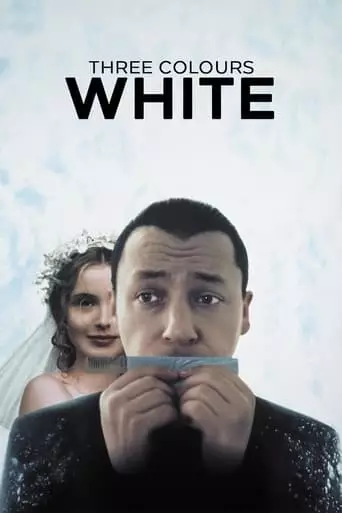
Trois couleurs: Blanc (1994) Watch Online Free
Polish immigrant Karol Karol finds himself out of a marriage, a job and a country when his French wife, Dominique, divorces him after six months due to his impotence. Forced to leave France after losing the business they jointly owned, Karol enlists fellow Polish expatriate Mikołaj to smuggle him back to their homeland.
Three Colors: White is the second film in Krzysztof Kieslowski’s acclaimed Three Colors trilogy, which explores the French revolutionary ideals of liberty, equality, and fraternity. White focuses on the theme of equality, a concept explored through the life of Karol Karol (Zbigniew Zamachowski), a Polish immigrant living in Paris. After his French wife, Dominique (Julie Delpy), divorces him for his impotence and leaves him destitute, Karol is forced to return to Poland. Struggling with the loss of his marriage, business, and identity, he embarks on a journey of self-reinvention, seeking revenge and a way to regain his dignity. Through a series of complex events, Karol’s return to Poland becomes a struggle for justice and equality, both personally and in the broader sense.
The film’s plot unfolds with a sense of dark humor and emotional depth, as Karol goes from a victim of injustice to someone who takes control of his own fate. His journey is marked by his encounters with various characters, including Mikolaj (Janusz Gajos), a fellow Polish expatriate who helps him, and his increasingly complicated relationship with Dominique. The film moves between France and Poland, highlighting the contrasts between the two countries and the different social and political landscapes Karol must navigate.
Kieslowski uses the color white to symbolize equality, one of the core values of the French Revolution. The use of this color in the film is pervasive, appearing in various visual motifs, such as snowy landscapes, white pigeons, and even the clothing worn by characters. The film also examines themes of revenge, love, and identity, as Karol’s quest to regain his life and self-worth mirrors a broader exploration of social and personal equality. Through Karol’s journey, Kieslowski delves into the complexities of human nature, illustrating how individuals strive for balance and fairness in a world often defined by power imbalances.
The film is notable for its exploration of the emotional and psychological effects of divorce, impotence, and societal expectations. Karol’s journey is both tragic and darkly comedic, capturing the absurdity of life and the lengths people will go to in order to reclaim their sense of self. The film is also a commentary on the tension between personal freedom and social constraints, and how individuals navigate these forces in their pursuit of justice.
After watching Three Colors: White, you may feel a sense of emotional complexity, as the film leaves you with a mix of satisfaction, unease, and contemplation. The journey of Karol is both tragic and redemptive, and you might find yourself reflecting on the nature of equality and revenge. The film’s combination of dark humor and poignant drama will likely leave you thinking about the characters’ choices and the broader societal themes explored in the story. Kieslowski’s delicate balance between humor and tragedy ensures that the film is both thought-provoking and emotionally resonant. Ultimately, you may feel a mix of admiration for the film’s artistry and a deeper understanding of the personal and societal struggles it portrays
